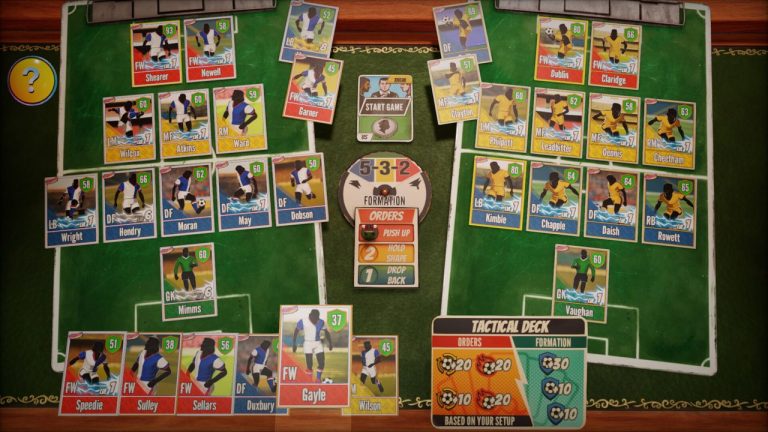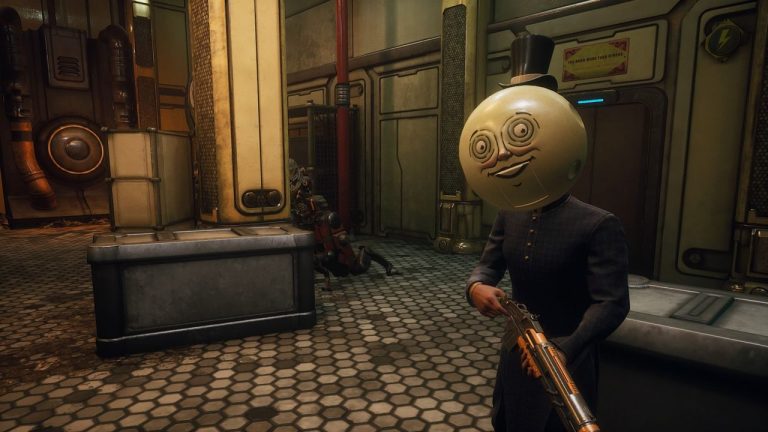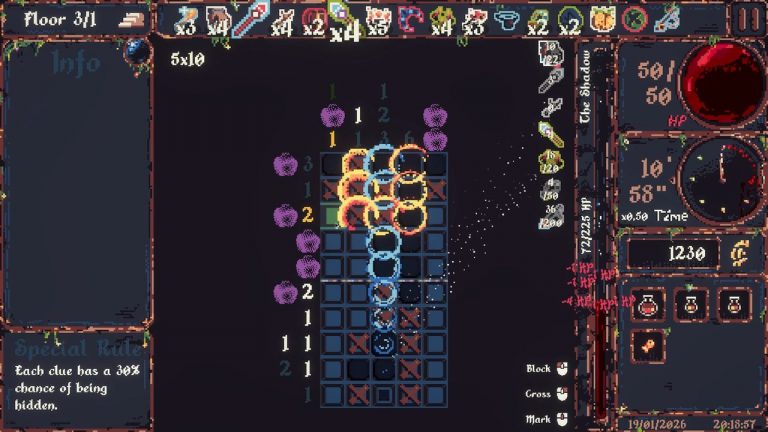Pax Dei is an exciting prospect. A “social sandbox” MMO from Mainframe Industries, a developer that includes many EVE Online alumni, it eschews concepts like levels, classes and heroic journeys, instead promising players a medieval life where they can find a niche and live in it. You can become a simple tailor in a small, player-run village; an architect designing an elaborate castle for your clan; or a knight serving in a barony, upholding its laws and duking it out in PvP battles.
Following a series of alphas, it’s now heading to early access, where Mainframe Industries will be able to introduce and test more of its big-picture features, including religion, the feudal system and the player-run economy. At the moment, though, it feels a lot more like a multiplayer survival game.
(Image credit: Mainframe Industries)
“The idea is that we’ll have emergent trades, and then we’ll have artisan guilds, and people will come together and they will form big towns,” says game director Reynir Hardarson. “And over time you’ll have the formation of actual civilisations. But currently, the game is a little bit more like a survival game, because it’s missing a lot of pillars.”
All the trappings of the survival genre are here: you must scour the world for resources, construct workbenches and other devices, refine said resources or turn them into tools, and eventually grow from a near-naked survivor into a self-sufficient veteran all decked out in armour. You’ll also need to take breaks to eat and drink, but skipping meals won’t kill you—you’ll just be missing out on some buffs.
Even without all the planned pillars, however, there’s still a hint of the social sandbox. Where Pax Dei differs from Valheim and other popular survival games is the focus on multiplayer. Rather than a co-op game you’ll play with a small group of friends, you share the world with lots of other players, who can choose to work together in clans, or compete in PvP zones. But while you don’t technically have to cooperate with other players, avoiding human interaction and striking out on your own can be tough.
The quest for trousers
(Image credit: Mainframe Industries)
My self-imposed quest to make some trousers really encapsulates this. Covering up your knees is not usually an epic endeavour, so I thought it would be a realistic first goal once I’d picked a small plot of land to call home. Instead, I spent the better part of a day trying to create a simple item of clothing.
People are Pax Dei’s most important resource.
First I had to craft a tailor’s toolkit at my carpenting station, and then I had to use the toolkit to create another crafting station where I could make my trousers. Both demanded a bunch of different resources and crafted goods. But with that finally placed in my ramshackle base, I was ready to finally cover up my surprisingly smooth gams. Or so I thought. Pax Dei had something else in mind for me: more crafting and building. Hours of it. More devices, more crafted goods, hunting trips into the forest where I’d get mauled by bears and wolves. And lots of waiting around with extremely bare knees.
Eventually I did make some trousers. And I learned a valuable lesson: people are Pax Dei’s most important resource. By joining a clan, I could use resources and goods gathered and crafted by my pals to speed up the process. Maybe the clan would have a dedicated tailor, letting me avoid the work altogether. Even hermits entirely opposed to joining a community have some options. You might bump into another player and trade with them. Or you could make a trip to the market to buy what you need.
(Image credit: Mainframe Industries)
Hardarson also admits that the balance was a bit broken in the alpha build I was playing, which made the early game much harder—hence my trouser trials and tribulations. In early access, the experience should be different. “This now feels very much like a Valheim model survival game where you have to build everything yourself,” he says, “but the idea is that you don’t need to do that. You can go and sell your wares in the marketplace, get gold, and you can buy your trousers pretty early on. And, of course, there’s better balancing—you can build and craft easier, way faster, if you want to go down the complete crafting route yourself.”
Years of MMOs letting us go it alone has killed off some of the genre’s inherent sociability, but Mainframe wants to ease players back into it. So you might just organically bump into players and clans because you’ve placed your plot in an area with lots of resources, which will naturally draw a crowd. And then you’ve got things nudging you towards other players, like the need to trade.
“So you can walk into the village, you can buy and sell, you can see what’s worth it, and that kind of creates a quest for you,” says Hardarson. “It also gives you a soft incentive to start to know these people, if they’re wandering around the village. We want to build this player-driven community without forcing anyone into being highly social.”
(Image credit: Mainframe Industries)
Crafting, hunting and fighting doles out XP, which increases the related skills, and more RPG systems are coming, but there’s no level system, which is designed to encourage people to group up and work together, removing the barriers that levels create. You won’t be stopped from contributing to a village or playing with a friend because they are level 60 and you’re level 1.
“In Pax Dei, if we meet, I can join you, and you can just give me stuff and I can become part of the village,” says Hardarson. “I’m immediately valuable to you because I have inventory, or I can do some healing spells rather quickly. I am a meaningful addition to your clan. And that’s basically how we looked at all the game systems: how can we maximise human interaction without forcing anybody into it?”
War is good for business
(Image credit: Mainframe Industries)
This concept of everyone being valuable is clearest in the interplay between different roles and playstyles. So you might not be interested in PvP—which in its current form is quite limited, but will soon grow to encompass siege warfare and kingdoms fighting each other—but Haradarson notes that this doesn’t mean you can’t contribute, or won’t be affected by the wars raging around you.
How can we maximise human interaction without forcing anybody into it?
Reynir Hardarson, game director
“Once the kingdoms go to war, that completely changes the demand in the economic system. All of a sudden, food prices are rising, the demand for food is going through the roof.” So if you’re focused on farming and raising livestock, or you’re a baker, you’re going to be even more essential, and wealthier. Meanwhile, anyone skilled at crafting weapons and armour is going to find their services in much greater demand. “There’s a lot of transfer of value.”
Concepts like knights, kingdoms and baronies will be coming over time, starting with knights, which will serve as the basis for the feudal system. Players will be able to swear allegiance to a knight, turning into their soldiers, ready to start causing a ruckus in PvP warfare. Eventually, knights will be able to band together to form baronies, which will allow them to build castles and fortifications outside of the PvE heartlands, which will become focal points for big PvP wars and sieges.
(Image credit: Mainframe Industries)
From these foundations will come new social structures and roles, all separate from the clan system. While these civilisations will have fortifications and even resource-rich areas that they control, they don’t have borders or territory within the heartlands. That’s all still divided up between players and clans, and you don’t need to join the kingdom that most of your clan belongs to. So it’s not about the territory you control; it’s about the people who’ve sworn fealty to you. And they can just leave you, reducing your influence.
“So the knights and barons have to be very socially active,” says Hardarson, “to maintain the structure, because it really all comes from the power of the social hierarchies.” Expect a lot of politics and campaigning, then. And this goes for lower positions. Players beneath barons and knights can be appointed positions of power, some of them petty, but some with special abilities, so there will be a lot of competition. “There will be thefts, there will be coups, there will be backstabbing.”
Finding religion
(Image credit: Mainframe)
Like the real medieval realms inspiring it, Pax Dei’s society isn’t solely ruled by the nobility. Knights, barons and monarchs share power with the clergy. So players will be able to follow a religion, which itself is player-run, with chapels and churches and another hierarchical system. Players will create parishes, which function a bit like the baronies, and the bigger they are the more roles will become available. So you’ll be able to become a bishop, a cardinal or even a pope.
Joining a parish will confer benefits like using churches to fast travel—Pax Dei’s worlds are big, and long journeys increase the likelihood of getting murdered by bears or bandits—as well as access to your parish’s miracles. Pax Dei is a world where magic is real, where ghosts exist and people can cast spells. But unlike an MMO such as World of Warcraft, where you can roll a Mage or a Warlock and gain access to more spells simply by levelling up, Pax Dei isn’t a linear journey—this stuff actually needs to be discovered.
“Everything is discovered in the world itself,” says Hardarson. “You will find new magic, new skills, new recipes in the world; it’s not part of a level unlock. And you might even be the only one who has this new magic, or found it, and that kind of spreads out through the player organisations.”
(Image credit: Mainframe Industries)
That last part is one of the most exciting things for me: the idea that you could discover this new spell or a new invention that nobody else has ever seen before, which can then give your clan or civilisation an edge as your people get access to it. MMOs so rarely give us surprises or eureka moments nowadays, where world-firsts usually amount to completing a raid before anyone else or hitting max level right after a new expansion launches, so this all holds a great deal of appeal.
It all sounds impressive, but right now these are ambitious plans rather than tangible features. It remains to be seen how it all comes together during early access. But I still saw some impressive things in the last alpha: particularly the architectural wonders erected by diligent players. Pax Dei’s low-fantasy realm is an incredibly striking place—a wilderness full of azure lakes, imposing mountains and moody forests tempting you to get lost inside them. And sprouting out of this landscape are all of these homes, villages and magnificent castles.
What’s immediately striking about the player creations is that most of them genuinely look good—or at the very least thematically appropriate. In games with building systems as beefy as Pax Dei’s, you often end up with a lot of random structures. Ugly bunkers, utilitarian bases, hideous monuments to the mad ambitions of their creators; but strolling along the banks of a river while I was looking for a spot to place my first plot, I was surprised to mostly encounter cosy cottages, multistory homes clearly belonging to artisans, and fancier structures, like a huge fortification stretched out across a valley.
Home comforts
(Image credit: Mainframe Industries)
During the alpha, players had two plots they could place and build inside—in early access you’ll have one, two or four, depending on what Founder’s Pack you purchase—and individually they’re quite small, giving you enough room to build a decent-sized house with a garden, or maybe a quaint inn. But, again, this is where other players come in.
So it’s sort of a soft incentive for people to band together and collaborate.
Thor Gunnarsson, CEO
“If you build next to someone, your common buildable area expands,” CEO Thor Gunnarsson says as he takes me on a tour of a 40-person clan’s settlement. “So it’s sort of a soft incentive for people to band together and collaborate.” By placing plots next to each other and opening up permissions, clans can create massive structures or elaborate settlements, extending things well beyond the two plots I had access to. This clan’s town contained towers, homes, workshops and an indomitable-looking castle, complete with banquet hall. After a clan meeting, the players could retire to the balcony to relax and take in the incredible views of the valley far below, where other players had created their own settlements.
Watching early players interact with the system inspired the team to go a lot further with it than they’d previously planned, and hovering over a building in construction mode reveals just how many tiny components go into these more complicated structures. After managing to only build half of a small hovel, I was thoroughly impressed. And a bit jealous.
(Image credit: Mainframe Industries)
This is likely one of the first things new players will get stuck into first. After you’ve placed your simple camp and crafting stations, your next step is constructing your first home—though in the alpha, acquiring the massive amounts of stone and wood required for even a simple building demands a lot of work. But with Mainframe planning on making the early access crafting and building experience a bit faster and easier, you should hopefully have your little house ready quicker than I did.
On the subject of early access, Mainframe is going down the “one-time buy-in” model for early access, says Gunnarsson, while the full version will likely have a subscription. “We will communicate with good advance notice on the final pricing and business model for when we leave early access, but very much for us now it’s about getting the level of playerbase up to a point where we have enough to basically run the iteration and the balancing of the game, and see how these new systems that Reynir has been describing layer in and how they’re received by the community. And that’s the critical focus for us.”
(Image credit: Mainframe Industries)
As a lover of MMOs who still plays WoW, Guild Wars 2 and Star Wars: The Old Republic, I’m really craving something new, and in particular something sandboxy and distinct from the games where I’ve been spending most of my time. Something as freewheeling as Star Wars: Galaxies (RIP), or ambitious (but less inscrutable) as EVE Online. I’m keeping my fingers crossed Pax Dei becomes that.
“We’re hoping to build a world that we can all live in together for decades to come,” says Gunnarsson. “And we take, of course, inspiration from the timelines and longevity of MMOs like EVE and World of Warcraft—both games that are now beyond their first two decades of live operations. That’s something that we absolutely aspired to with Pax Dei.”












